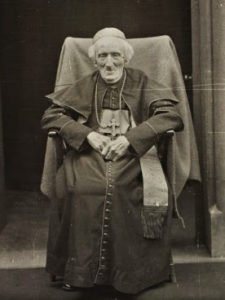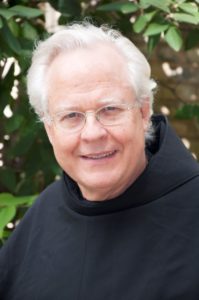 CAN I KNOW TRUTH?
CAN I KNOW TRUTH?
(Part Eleven: THE BRAVE NEW WORLD AND CONTINUATION OF CHRISTIANITY)
12 Days on Pilgrimage in August
“I am the way, and the truth, and the life” (Jn. 14:6).
Why is “interiority” such a high stake for St. John Henry Newman? His fundamental redress of the modern picture of interiority is because he thinks the modern picture of interiority is devastating to the prospects of authentic Christianity. Cyril O’Regan calls it “the affliction of interiority.” [1] The root is in John Locke’s philosophy written in the 1690’s. His influence remains massive today, which is why the diagnosis of the affliction of modernity is spot on. It is a fact that many are not aware that they are Lockeans. The affliction of interiority lies in the weight of responsibility the subject bears to practice the ethics of belief. In religious matters a person is free to act according to the evidence and adjust the tone of one’s claims. If demonstration is ruled out from the beginning, as it is at the very core of Lockean thought, we operate in a universe of probabilities. Various grades of conviction are permissible. The high stake for Newman was his full recognition of Lockean inspired intent at Oxford to instill a more or less universal convictionless manner of holding religious beliefs. The intent of our Marian Franciscan pilgrimage aligned with Newman.
Newman diagnosed the affliction of modernity as something wholly different from Locke. Interiority to Newman as the indelible mark of a human being is a fact rather than a responsibility that a finite person bears towards the world. Newman and Pope Emeritus Benedict have a deep sense of the congeniality of interiority and the world. O’Regan’s diagnosis: “interiority is afflicted because it is receptive: it receives or suffers the influences of the world, others, and above all else God. Its affliction is its richness as well as its poverty and is the index of the intrinsic relationship that ironically Locke’s rationalist impersonalism does not allow, since the common rationality operative in his procedural logic seems itself to be no more than the means of repair of an atomistic individualism ….”[2]
The problem of the evacuation of doctrines and practices effected by the secular modern age and the drift of the Church towards the secular is my central concern. Retrieval of a direction for the Church’s further journey is so necessary. By that I mean that if I speak in the language of tradition, in a Marian Franciscan mode, I am speaking of the gift that is handed down and exceeds what the hander-on offered and sets the one who receives the gift a task of developing as well as elucidating what is intended and what is said.[3] As laity, parents, teachers, religious and priests, we have the gift of tradition handed down to develop and elucidate. The difficulty is the refusal to recognize the gift or to make any effort to understand the gift.
The indelible mark of a human being is “interiority.” To bleed human beings of interiority by insisting that human beings are fully explicable in rationalist or naturalist terms is a contagious problem. Interiority is sidelined by authorizing a hyperbolical interpretation of the will as free inquiry that seals a person’s subjective judgment as truth. At best, both demonstrate a tension in the relation with the naturalistic tendency in modern rational thought and, at worst, represent its contrary. When interiority is being evacuated by a particular form of rationalism, it inevitably becomes an incoherent position. [4] Evacuating the interioriority of the person takes place by imagining the mind to re-present the world, to function as calculator of probabilities, and to insist on the prerogatives of free inquiry and the rights of private judgment. What is lost is the integral part of the training and virtue of the person making the judgment.
The contemporary Catholic philosopher, Charles Taylor, identifies our time as “the social imaginary.”[5] There is continuity with St. Augustine and the epic effects of the sack of Rome in 410. In The City of God, he elucidated a “thick” argument on the subjectivity of the finite person, always seeking, always in dialogue with others, forever open to change, and forever counting on and being open to the radical transformation effected by grace. We may compare his thought to today where there is a brave new world, a hold of certain ideas, images, or fundamental principles across an entire society that argues from rather than towards. In such a context, the issue of the existence and nature of interiority is hugely important.
Thinking with the mark of a prophet, Newman “diagnoses and clarifies the crisis regarding the view of the human subject and laments the historical happening that has replaced an ecstatic and relational view of human interiority with a philosophical and Christian pretender that, for him, fails the tests of both reason and faith.”[6] His prophetic critique links with lamentation, in hope that in our day that is coming to terms with what is interpreted as a moribund and debunked Christian past, a more satisfying account of interiority will emerge, with thicker roots in the Christian philosophical and theological traditions.
Newman recognized each person’s view on the world as unique and indivisible, for he or she is the judger. The interiority that Newman puts forward is in the first person. The judge judges according to the standard of truth that is a check of will and self-interest. It checks the arbitrariness of those who follow Locke and advocate private judgment, meaning that the person has the right to exercise his or her preferences without reference to a standard of the good, either internal or external. Newman’s subject is individuated and beyond Locke’s imagining, while being open to influence from the past and communities of belief. Crucial is Newman’s claim that the human being has immediate access to God in and through conscience. [7]
Fr. Ed Ondrako, OFM Conv., Univ. of Notre Dame eondrako@alumni.nd.edu
_________________
[1] C. O’Regan, “Newman and the Affliction of Modernity.” Church Life Journal, McGrath Institute for Church Life, University of Notre Dame, 7 October 2022.
[2] “Newman and the Affliction of Modernity.”
[3] C. O’Regan inspires me to write and minister as a Franciscan priest by carrying forward what was opened up but not fully articulated in the Franciscan tradition by Fr. Peter Damian Fehlner, OFM Conv.
[4] I am more than tempted but refuse to accept the bait to apply to contemporary American politics that are bathed in Lockean thought, all-be-it, unwittingly. Every reader is capable of judging wisely.
[5] C. Taylor, The Secular Age, 2007. This move in recent modern philosophy is away from arguments.
[6] “Newman and the Affliction of Modernity.”
[7] J. H. Newman, Oxford University Sermons, A Grammar, Apologia, and Letter to the Duke of Norfolk.
Fr. Edward J. Ondrako, OFM Conventual
Research Fellow Pontifical Faculty of St. Bonaventure, Rome
Visiting Scholar, McGrath Institute for Church Life
University of Notre Dame
Feast Day of Bl. John Duns Scotus ~ November 8, 2022
